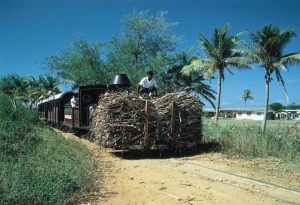Home » Fiji
Fiji Country
About Fiji
Fiji lies in the heart of the Pacific Ocean
midway between the Equator and the South
Pole, and between longitudes 175 and 178
west and latitudes 15 and 22 south.
Fiji’s Exclusive Economic Zone contains approximately 330 islands, of which about one third are inhabited. It covers about 1.3 million square kilometres of the South Pacific Ocean.
Fiji’s total land area is 18,333 square kilometres. There are two major islands – Viti Levu is 10,429 square kilometres and Vanua Levu 5,556 square kilometres. Other main islands are Taveuni (470 sq km), Kadavu (411 sq km), Gau(140 sq km), and Koro (104 sq km).
Fiji’s Exclusive Economic Zone contains approximately 330 islands, of which about one third are inhabited. It covers about 1.3 million square kilometres of the South Pacific Ocean.
Fiji’s total land area is 18,333 square kilometres. There are two major islands – Viti Levu is 10,429 square kilometres and Vanua Levu 5,556 square kilometres. Other main islands are Taveuni (470 sq km), Kadavu (411 sq km), Gau(140 sq km), and Koro (104 sq km).
Culture
The Republic of the Fiji Islands is a
multicultural island nation with cultural
traditions of Oceanic, European, South
Asian, and East Asian origins.
Fiji is a country said to have the friendliest
locals in the world, who never fail to offer
an enthusiastic greeting of “bula!” to
travellers.Traditional Fijian culture and
customs are enchanting, especially the songs
of welcome. Virtually everywhere you go,
you’ll be serenaded by warm smiles, friendly
waves and the strains of island music.
Sometimes the music even reaches your ears
when you’re out at sea, paddle boarding or
snorkelling.
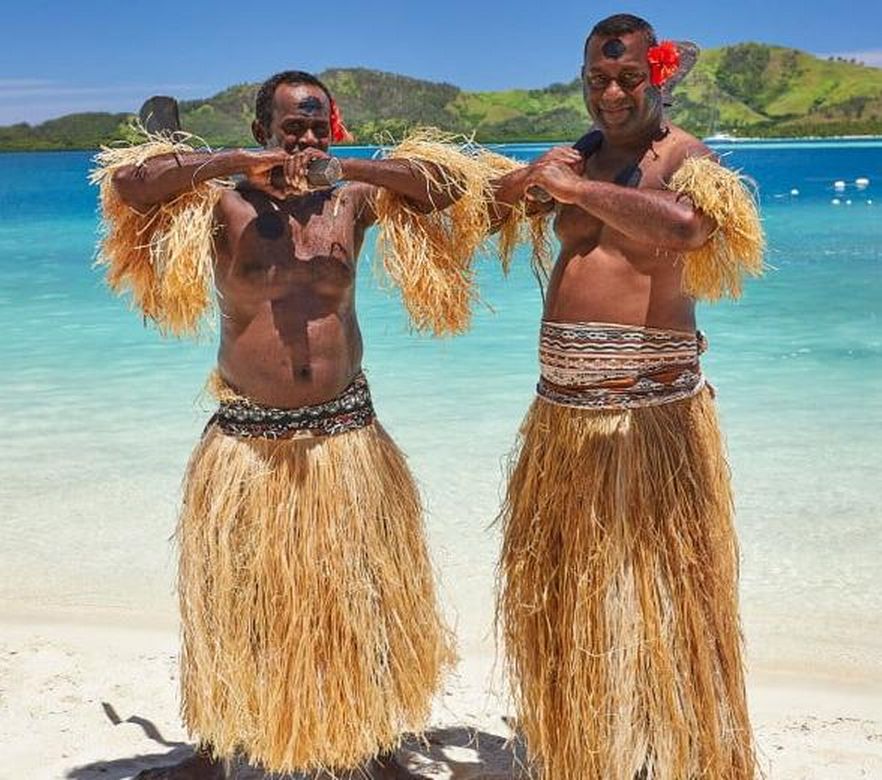


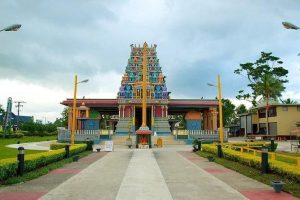
Religion
Religion is an important part of Fijian
culture and heritage, and the multi-cultural
nature of the population means a wide range
of religions are followed. As you tour the
main islands you’ll see some lovely
examples of Christian churches, Hindu and
Sikh temples and mosques. Even if you are
not religious, you’re welcome at Fijian
churchs and Hindu Temples to join in with
the magnificent singing and prayers.
A multi-racial, multi-cultural nation, Fiji is
represented by all the major religions of the world. More than half of Fiji’s population
are Christians (52.9%), Hindus (38.1%),
Muslim (7.8%), Sikhs (0.7%), Others
(0.5%).
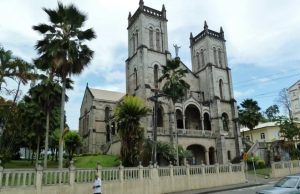

Fiji-India Bilateral Relations
Background
Fiji’s links with India began in 1879 when
Indian laborers were brought to the country
by the British to work on the colonial sugar
plantations under the indenture system.
Between 1879 and 1916, up to 65,000
Indians (Girmitiyas) were brought to Fiji
and were given the option of staying back in
Fiji upon completion of their indenture.
From early 20th century, Indian traders and
others also started arriving in Fiji. In 1920,
the indenture system was finally abolished
due to growing opposition from India, Fiji
and around the world to the slave-like
conditions under which the Girmitiyas
worked. Many of the Girmitiyas chose to
return, while several stayed back and made
Fiji their home. Five generations later, the
descendants of the Girmitiyas enjoy the
same rights as equal citizens in Fiji and add
to the rich social and cultural milieu of the
country.
The Hon. Prime Minister of India, Shri
Narendra Modi, visited Fiji on 19 November
2014 and this was a breakthrough and
memorable event since the last visit by an
Indian Prime Minister, Mrs Indira Gandhi in
1981. PM Modi’s visit not only boosted Fiji-
India relations but also cemented India’s
relations with all the Pacific Island
Countries.
There has been exchange of
many high level visits following this visit by
the Honourable Prime Minister of India.
This year in February, Fiji also hosted the 12th World Hindi Conference which was attended by
the External Affairs Minister Dr. S. Jaishanker.
Recently this month on the margins of the
3rd Forum for India-Pacific Islands
Cooperation (FIPIC) in Papua New Guinea,
both Prime Minister’s had a fruitful bilateral
meeting. Prime Minister of the Republic of
Fiji, Honourable Sitiveni Rabuka conferred
the Companion of the Order of Fiji Medal to
his Indian counterpart, Honourable Shri
Narendra Modi, Prime Minister of the
Republic of India. Prime Minister Rabuka
bestowed the special medal on behalf of His
Excellency the President of Fiji, Ratu
Wiliame Maivalili Katonivere in recognition
of Hon. Modi’s outstanding achievements
and meritorious service to humanity.

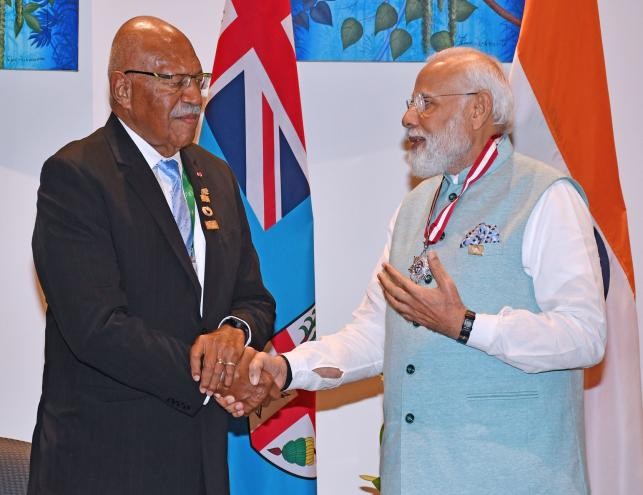
Fijian Economy
Fiji has a market economy based primarily
on tourism and agriculture, the latter
including a substantial subsistence sector
dominated
by
indigenous
Fijians.
Subsistence farmers earn supplementary
cash income from cultivating copra, cocoa,
kava, taro (locally called dalo), pineapples,
cassava (manioc), or bananas or from
fishing. The commercial sector is heavily
based on garment manufacturing and on
sugarcane, which, for the most part, is
produced by independent Indian farmers.
The economy also has a strong service and
light-industrial component serving small
neighbouring countries as well as Fiji;
activities
range
from
boatbuilding
(especially fishing boats and pleasure craft)
to brewing and paint manufacture. The
government offers incentives (including
residence) for investors but insists on
potential for job creation and training
programs for local employees.
Fiji is described as middle-income country
and one of the more developed of the Pacific
island economies, although it remains a
developing country with a large subsistence
agriculture sector.

Commercial and Economic Relations with India
Trade between Fiji and India have been
growing over the years and India remains a
supplier of many of the goods and services
consumed in Fiji from machinery, farm
implements, electronics, apparel, spices,
gems and jewellery to pharmaceuticals
among others.
A lot of trade and investment
from India happens through third countries
such as Hong Kong, Singapore, Australia,
and New Zealand and these are not
realistically captured. Today India is a major
destination for medical and healthcare
requirements, while tourism and film
shooting is also on the rise.

